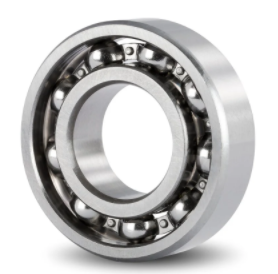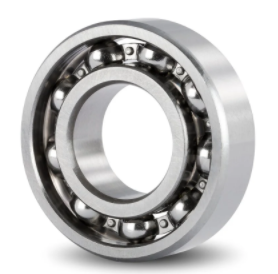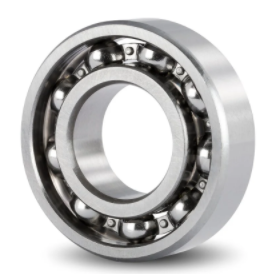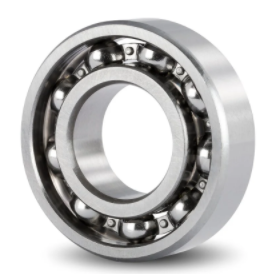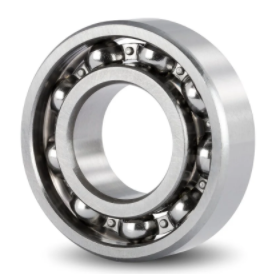Cancel
S6200

| Part Number | S6200 |
| System of Measurement | Metric |
| Bearing Type | Ball |
| For Load Direction | Radial |
| Construction | Single Row |
| Seal Type | Open |
| Bore Dia | 10 mm |
| Bore Dia Tolerance | -0.008mm to 0 |
| Outer Dia | 30 mm |
| Outer Dia Tolerance | -0.009mm to 0 |
| Width | 9 mm |
| Width Tolerance | -0.120mm to 0 |
| Ring Material | 440C Stainless Steel |
| Ball Material | 440C Stainless Steel |
| Cage Material | 300 Series Stainless Steel |
| Dynamic Radial Load | 4590 N |
| Static Radial Load | 2160 N |
| Max Speed (X1000 rpm) | 21.6 |
| Lubrication | Required |
| Shaft Mount Type | Press Fit |
| Temperature Range | -30° to 110 °C |
| ABEC Rating | ABEC-1 |
| Radial Clearance Trade No | C0 |
| Radial Clearance | 0.003mm to 0.018mm |
| RoHS | Compliant |
| Ball Dia | 4.762mm |
| Ball Qty | 8 |
| Weight | 32 g |
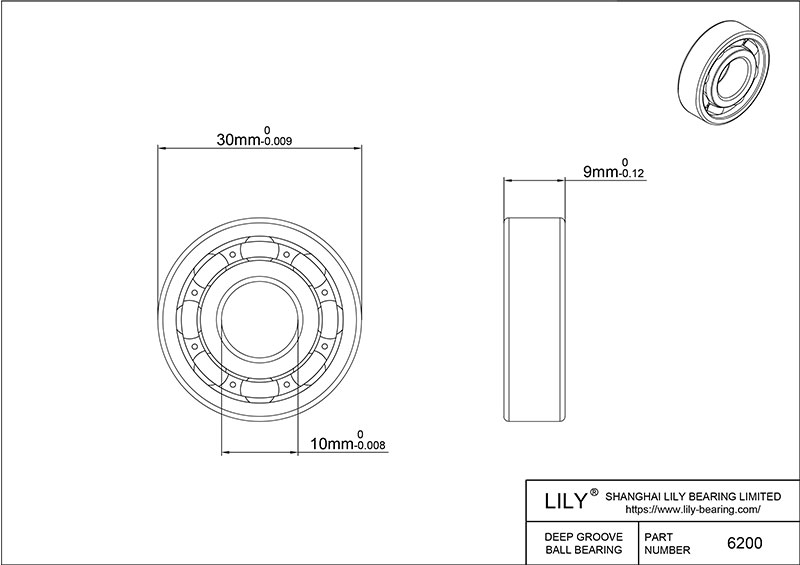
Design Features of S6200 Bearing
S6200 Bearing represents a precise melding of advanced metallurgy and engineering. Crafted from AISI440C stainless steel, it is uniquely tailored for applications that require a combination of corrosion resistance and hardness. S6200 bore dia is 10 mm. Its out dia is 30 mm. Its width is 9 mm. S6200 Bearing offers a blend of durability, precision, and compatibility tailored for specific operational needs.
What Benefits Can S6200 Bearing Provide?
- Corrosion Resistance: Thanks to AISI440C stainless steel, this bearing is resilient against moisture and certain chemicals.
- Durability: AISI440C's hardness ensures long-lasting performance under heavy loads.
- Versatility: It operates effectively across diverse temperatures and conditions.
- Precision: Reduced friction for smoother operations and energy savings.
What Can S6200 Bearing Be Used for?
S6200 Bearing is commonly used in applications such as:
- Marine Applications: Its corrosion resistance makes it ideal for environments with moisture and salinity.
- High-Load Systems: The hardness of AISI440C ensures this bearing can handle heavy loads efficiently.
- Precision Equipment: Instruments requiring reduced friction and high accuracy benefit from this bearing.
- Extreme Conditions: Effective across varying temperatures and conditions, making it suitable for both hot and cold environments.



})
